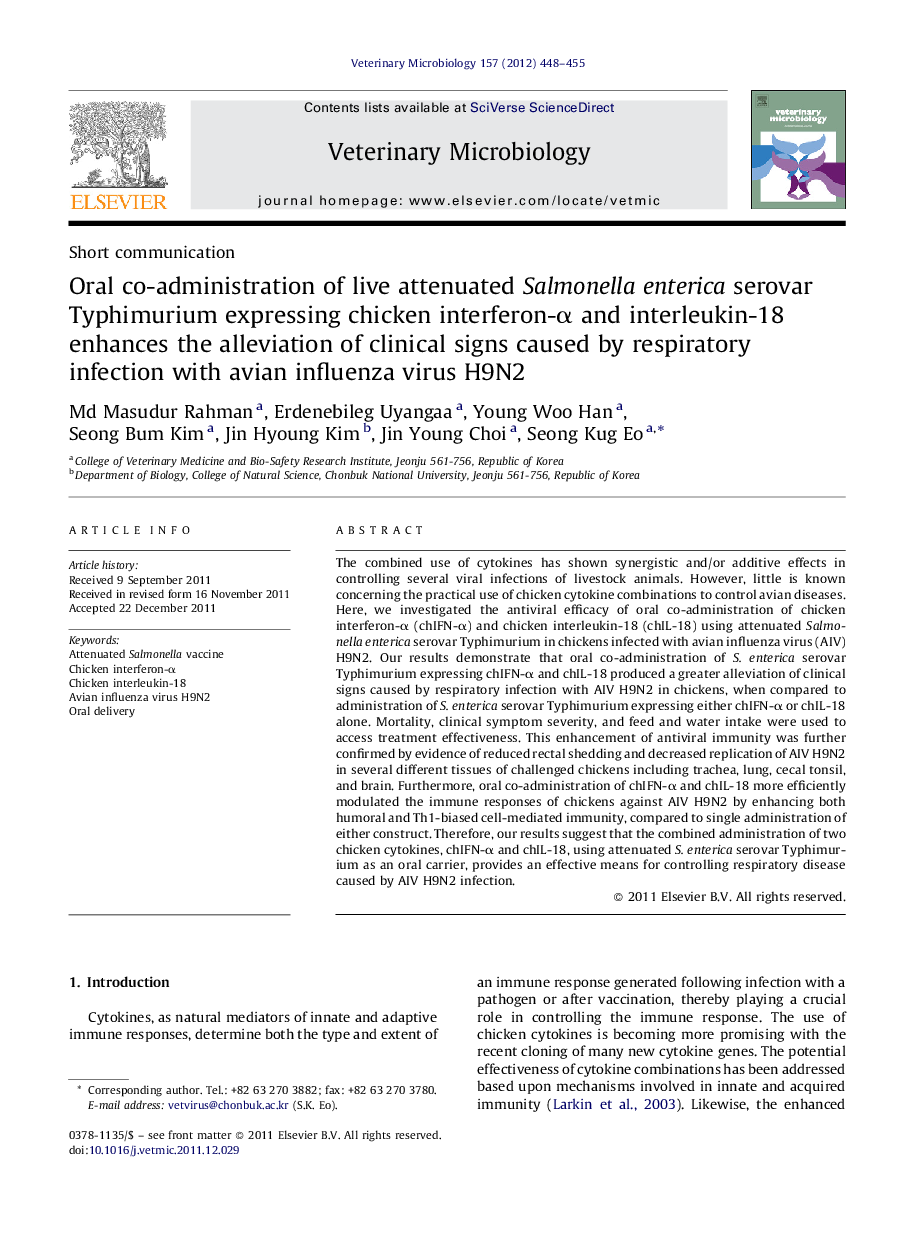| Article ID | Journal | Published Year | Pages | File Type |
|---|---|---|---|---|
| 2467269 | Veterinary Microbiology | 2012 | 8 Pages |
The combined use of cytokines has shown synergistic and/or additive effects in controlling several viral infections of livestock animals. However, little is known concerning the practical use of chicken cytokine combinations to control avian diseases. Here, we investigated the antiviral efficacy of oral co-administration of chicken interferon-α (chIFN-α) and chicken interleukin-18 (chIL-18) using attenuated Salmonella enterica serovar Typhimurium in chickens infected with avian influenza virus (AIV) H9N2. Our results demonstrate that oral co-administration of S. enterica serovar Typhimurium expressing chIFN-α and chIL-18 produced a greater alleviation of clinical signs caused by respiratory infection with AIV H9N2 in chickens, when compared to administration of S. enterica serovar Typhimurium expressing either chIFN-α or chIL-18 alone. Mortality, clinical symptom severity, and feed and water intake were used to access treatment effectiveness. This enhancement of antiviral immunity was further confirmed by evidence of reduced rectal shedding and decreased replication of AIV H9N2 in several different tissues of challenged chickens including trachea, lung, cecal tonsil, and brain. Furthermore, oral co-administration of chIFN-α and chIL-18 more efficiently modulated the immune responses of chickens against AIV H9N2 by enhancing both humoral and Th1-biased cell-mediated immunity, compared to single administration of either construct. Therefore, our results suggest that the combined administration of two chicken cytokines, chIFN-α and chIL-18, using attenuated S. enterica serovar Typhimurium as an oral carrier, provides an effective means for controlling respiratory disease caused by AIV H9N2 infection.
